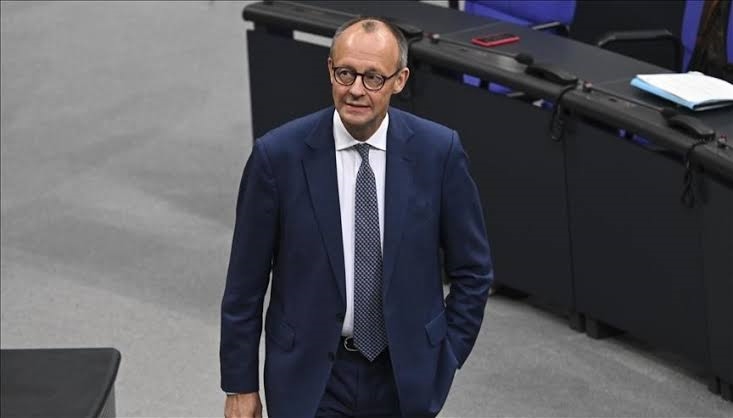German conservatives approve coalition deal with Social Democrats
Following compelling speech by CDU leader Friedrich Merz, delegates vote overwhelmingly to approve coalition agreement

BERLIN
Germany's center-right CDU/CSU alliance approved a coalition agreement with the Social Democrats at a special party conference in Berlin on Monday.
After a powerful speech by Christian Democratic Union (CDU) leader and Chancellor-designate Friedrich Merz, delegates overwhelmingly voted to approve the coalition agreement.
In his address, Merz emphasized that Germany needs a strong and effective coalition government under Christian Democratic leadership to address the significant domestic and foreign policy challenges facing the country.
“Our united Europe is under threat,” he said, warning that Russia’s war against Ukraine targets not only Ukrainian sovereignty and territorial integrity but also “the entire political order of the European continent.”
Merz also cautioned that European democracies face serious challenges from “frightened and insecure, even radicalized citizens at home,” citing the rise of far-right and populist parties such as the Alternative for Germany (AfD).
Identifying transatlantic tensions as another major challenge, he promised to work toward solutions. “I don't want us to enter into an open trade war,” he said, suggesting that the EU could propose to the US “that we should ideally zero out all customs duties.”
Merz also expressed skepticism about the Trump administration’s commitment to European security and underlined that Germany should invest more in defense and assume greater responsibility. Noting that April 28 marks the 70th anniversary of Germany’s accession to NATO, Merz pointed out that Trump's policies have cast doubt on the alliance's future.
“NATO is not just a military alliance. It is a political alliance across the Atlantic. But none of us knows whether this alliance will continue for the coming decades in the form we are celebrating it today,” Merz said.
“That is why it is now crucial that we identify and organize our priorities correctly in German politics. Our country's external security, the guarantee of freedom and peace, is the fundamental prerequisite for everything else: domestic policy, economic policy, environmental policy, and social policy," he added.
The coalition agreement between the CDU/CSU alliance and the SPD was finalized earlier this month following weeks of negotiations among political leaders. Following the Christian Democrats' endorsement of the agreement, it now awaits a crucial vote from the SPD's 358,000 members.
The Social Democrats' membership vote concludes Tuesday, with results expected the following day. If approved, the official signing ceremony will take place on May 5, followed by the parliament's vote to elect Friedrich Merz as chancellor on May 6.
The Christian Democrats (CDU/CSU) won 28.5% in February's snap elections but fell short of an outright majority. Though the SPD saw their lowest-ever result at 16.4%, they emerged as a crucial coalition partner. Together, the parties will hold 328 seats in parliament – well above the 316-seat threshold required for a governing majority.
Anadolu Agency website contains only a portion of the news stories offered to subscribers in the AA News Broadcasting System (HAS), and in summarized form. Please contact us for subscription options.




